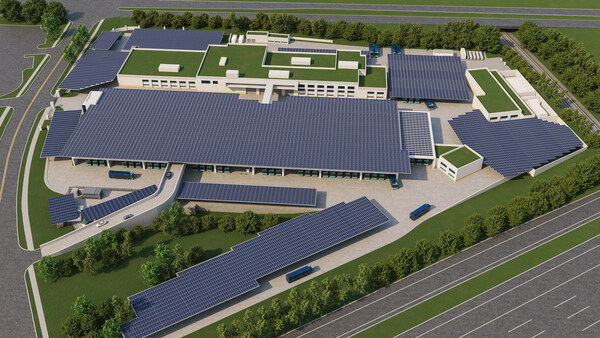AlphaStruxure and Montgomery County, Md., have broken ground on an integrated microgrid infrastructure project featuring electric bus charging and on-site green hydrogen production powered by solar and BESS.
The microgrid’s construction is expected to be completed next year, when the system will begin sending renewable energy back to the grid and have the ability to power zero-emissions buses coming through the David F. Bone Equipment Maintenance and Transit Operations Center.
This microgrid follows the launch of the Brookville Smart Energy Bus Depot in 2022, which was the county’s first fully constructed microgrid-powered bus depot and also led by AlphaStruxure.
Together, the two depots are anticipated to power about 335 zero-emissions transit buses, according to the County’s feet transition plan.
“It’s a joyous moment to be breaking ground on a project that is the new standard for public transit in the United States,” says Juan Macias, CEO of AlphaStruxure.
“The county has proven itself as a national leader in zero-emissions transit, in part by prioritizing simultaneous procurement of both the buses and the sustainable infrastructure needed to power them. Both are fundamental to a successful fleet transition. Our Energy as a Service approach enables the County to achieve sustainable and resilient transit without upfront capital, in a way that de-risks the financial, construction and operations phases of the project.”
Specifically, the microgrid will include 5.65 MW of rooftop and canopy solar, 2 MW of battery energy and 2.25 MW of charging capacity.
AlphaStruxure and the county will leverage a partnership with the local utility, Pepco, to deploy the large-scale microgrid on a rapid timeline. The microgrid will also be able to send up to 2 MW of renewable energy back to the utility grid via a Pepco net metering program.
AlphaStruxure’s partners for this project include Mortenson for design-build; Schneider Electric for the BESS, microgrid controls, switchgear and services. WSP is the engineer of record, AZZO is contracted network and cybersecurity. The Mobility House is being used for charge management software and Heliox for EV charger hardware.




